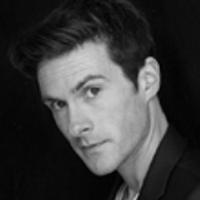
It's 4:30 p.m. It's dark. I'm hungry, naked and my neck hurts.
How long have I been here in this formless void, I wonder. Hours? Decades? No sun. No stars. Not so much as the sound of a breeze or the honk of a car horn. Just me and seven to 10 inches of heavily-salted water heated to approximately 33 C, the normal temperature of human skin.
I'm inside a pod slightly larger than a coffin. It's been given many names over the years: sensory deprivation tank, flotation tank, isolation tank. Academics call it a Restricted Environmental Stimulation Technique (REST). Once exclusively the domain of university researchers and new-age self-help gurus, the tanks, and the experience they provide, are exploding into the mainstream up and down the West Coast and across the country.
I turn my head in an attempt to get comfortable and get a horrible mouthful of acrid water. "Aaaagh," I sputter.
In clinical research settings, flotation REST (and its partner, chamber REST) have been credited with decreasing blood pressure, increasing creativity, improving memory, aiding healing and even helping people quit smoking and overeating. In one instance, REST helped a subject overcome a crippling fear of snakes.
"People are looking to explore altered states of consciousness," explains Mike Zaremba (known over email by the handle "Floating Yogi Mike"), co-owner of Float House, currently Vancouver's only commercial float centre. "And there are actually massive benefits to experiencing life in these altered forms. You come to different conclusions and different realizations, and come up with different approaches to living."
As salt stings my eyes, I try to remain positive. This is nice, I tell myself. I'm exploring an altered state of consciousness. Just me, my thoughts, my neck-cramp and my stomach -- all alone for the next hour and a half.
Sixty seconds later, I start to panic. What was I thinking? I don't want to be alone with my thoughts. Nobody should be forced to be alone with my thoughts. I begin to worry about what might happen if the building catches fire.
I rub my eyes with one salty hand and instantly hate myself. That's it, I think. I've been in here long enough. Surely it's been at least a half hour by now. I can climb out and get on with my life, confident that I gave it a decent try.
I sit up, throw open the door to the tank, wipe the salt from my eyes, and check my phone.
It's 4:42 p.m. "Aaaaaagh," I sputter.
4:45 p.m.: 'I hope this works'
Mike and his brother Andy opened Float House in May 2013, and thanks to a recent surge in interest, business is booming. With nine tanks at their Gastown location (an expansion from their original five), Float House is weeks away from opening a second facility in Kitsilano, one of three commercial float operations set to open in the area within the next month. At roughly the same time, Zaremba's cousin Erik is opening up a Float House in Victoria.
"When we opened the first five tanks, we literally didn't know how it was going to go," he laughs. "We had our investors, and they pumped in a shitload of money, and we were like, 'Man, I hope this works.' Thankfully, it did."
The Floating Yogi had his first session three years ago, and after a single float in someone's basement in Port Coquitlam, he invested in a tank of his own.
While floatation REST is making a commercial comeback, its cousin chamber REST has largely fallen out of favour. Both have vastly different, and equally fascinating, results.
Chamber REST involves keeping a subject in a darkened room with food and a chemical toilet for a period of 24 hours. Flotation REST, the type performed at Float House, typically lasts between 60 and 90 minutes. Flotation is made possible through the liberal use of Epsom salts (around 300 kilograms), which provide buoyancy.
Flotation REST is associated with lowering blood pressure, the reduction of muscle tension and headaches, and is used to treat insomnia. With chamber REST, the effects are more pronounced: increased creativity, improved recall and behaviour modification. In a 1987 study, 21 per cent of subjects continued to abstain from smoking after one year through the use of chamber REST.
REST, when combined with anti-smoking messages presented throughout a 24-hour isolation period, jumps to a 34 per cent success rate. (By contrast, after three months nicotine patches are successful around six per cent of the time.) A 1989 University of Arizona study found that 43 per cent of drug users who had undergone REST in conjunction with typical outpatient treatment were still clean after four years.
"For the most part people are very happy," Zaremba says of his customers. "They're like, 'That was a great experience. Very relaxing, very calming, very peaceful.' Some have trippier experiences: 'I saw visualizations. I saw different things.' Some people go so far as to say 'I went to another planet.'"
Zaremba doesn't want to suggest everyone will make it to Mars and back. He prefers to discourage preconceptions. "[People] should go in there really open-slated. Because that's where the quantum realm of creativity can happen," he says.
My neck has spontaneously stopped hurting by now, and I have to admit it's pretty relaxing. This is exactly what I thought the afterlife would be like when I was a kid. Just lying motionless in the dark. Forever. Clearly my childhood fears had less to do with death and more to do with boredom.
Is this it, I wonder? Have I entered the "quantum realm of creativity?" Am I being open-slated enough? It all starts to make sense. I'm comfortable. I'm content. This isn't sensory deprivation, I declare (to myself). It's a post-sensory environment.
Or, as Michael Hutchison's The Book of Floating (found in the Float House lobby, next to the HempForce protein powder and a book called Tanks for the Memories), explains:
"It is Gestalt/psychosynthesis, except that there is no longer a middleman -- you become your own therapist or guide or explorer or whatever," it reads. "Here I wish to express special thanks to Shakespeare, for in the tank one is the playwright, the director, the stage, the actor, the background scenery, the script, the audience and the critics; the inner theatre."
5:00 p.m. (ish): Inner theatre
I'm experiencing visuals. Flashes of light. Shapes. The harder I focus on them, the more intense they become. EEG scans performed during chamber REST regularly show increased theta wave activity -- associated with a highly creative state, something which usually happens only just before going to sleep, and just after waking up. This is likely due to the deep state of relaxation, but like most of the effects of REST (visualizations included), nobody's quite sure why it happens.
"There are some theories, but there's no definitive evidence for any one of them," explains Dr. Peter Suedfeld.
"People have taken EEG readings, but that doesn't really answer the theoretical question," he says. "It tells you what happens to alpha waves, but that only gives you the effects of REST. It doesn't give you the reason for those effects."
If anybody would know, it's Suedfeld. A pioneer in the field, he's spent over 30 years researching REST and its effects. A professor emeritus of psychology at UBC, Suedfeld's extensive writing was critical in changing attitudes toward the practice within the scientific community.
When Suedfeld began his research in the early '60s, the general consensus was that sensory deprivation was an overwhelmingly negative experience. Once Suedfeld began doing away with certain biased experimental practices, including scaring subjects before they went into REST, positive results began to emerge.
"When I first started publishing positive results, everybody said: 'No, no, no. You're wrong, because everybody else has found all these negative things,'" he recalls. "But over time, it became accepted that this really was beneficial."
5:15 p.m. (possibly): Treatment or torture?
Despite promising early results, REST eventually fell out of favour in the research community, due in part to reports that governments and police forces were using sensory deprivation as a torture technique.
"People who were doing REST research were criticized for doing it," Suedfeld explains. "They were equated with torturers and brainwashers.
"As a result of all of that, there was a reduction of interest in the field," he recalls. "But now it's having a revival, and there are increasing numbers of commercial flotation facilities."
Today, as part of a new generation, both researchers and commercial operators (like Mike and his family) are keeping busy. The Portland Float Conference attracts thousands of annual attendees each summer with the aim of uniting researchers with commercial operators. Commercial float centres have opened in Portland, Toronto, Calgary, Edmonton and Winnipeg. What does the future hold for floating enthusiasts?
"We'll find out very soon what the future of floating is here in Vancouver," Zaremba says. "We're opening up our Kitsilano location in about four weeks, but we're aware of two other commercial float centres opening in Kitsilano as well. That's three float centres in one community, which in my mind is pretty crazy saturation.... If they all survive, and it's a legit survival, then floating is going to explode."
0:00
The water's stopped existing at all. One by one, my senses are dropping away: sight, touch, sound and most recently, time. The tank is too small for much actual movement, but it feels like I'm floating in a gradual counterclockwise circle, like I'm caught in the middle of the world's laziest whirlpool.
It's like the moment right before you fall asleep. Except, here in the tank, it stretches on forever.
Then, there's a knock on the side of the tank.
"Time's up," says a voice.
A moment later, I emerge, dazed, into the lobby. The world is fast and loud.
"How was it?" Mike asks a twenty-something girl, fresh out of the tank herself. "Incredible," she grins. "I went to another plane."
Or, as The Book of Floating (also located in the post-float lounge, next to the world's largest salt-lamp) puts it, "a changed sense of your own powers; a changed awareness of what is possible, probable, desirable; a changed perception of the world you inhabit, the life you live." ![]()
Read more: Health















Tyee Commenting Guidelines
Comments that violate guidelines risk being deleted, and violations may result in a temporary or permanent user ban. Maintain the spirit of good conversation to stay in the discussion.
*Please note The Tyee is not a forum for spreading misinformation about COVID-19, denying its existence or minimizing its risk to public health.
Do:
Do not: